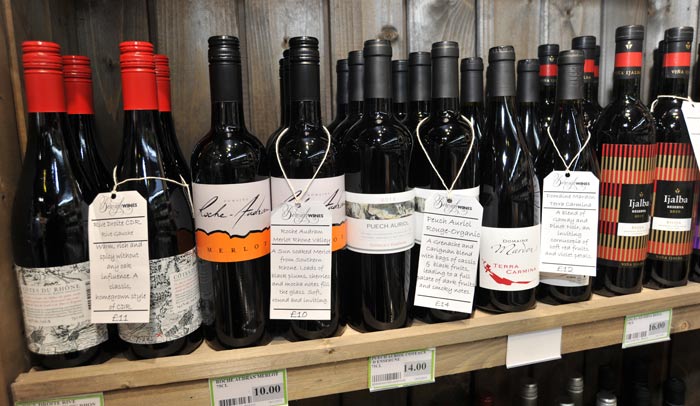Is wine the next frontier for local independent retailers? Yes, was the view of Jerry Tweeny, manager of Warner’s Budgens Moreton-in-Marsh when his store hosted the Independent Achievers Academy launch event earlier this year.
While his store is exceptional and has a brilliant location, Tweeny said that offering something that the multiples didn’t was vital to his shop’s success. Partnering with a premium wine supplier gave him an edge. This willingness to experiment was seen in success stories all around his shop.
Last week I heard opposing views from two retailers who attended the launch.
One said that he couldn’t sell fine wines to his customers and he had given up trying. Suppliers had trained shoppers to expect a deal and all people did was buy whatever was on promotion. It was impossible, he said, to build up demand for fine wines as any stock not on promotion didn’t sell.
The other retailer was inspired by the IAA visit. He has struck a deal with a niche supplier to promote a metre bay of upmarket wines. He has a track record of success with selling beers from micro-breweries. In fact, he is creating the space for the fine wines by delisting the smaller beer brands that are available in supermarkets. He built up his beer sales by talking passionately to customers about the beers that he stocked. He may be able to do the same with wine. Remarkably, he does not drink alcohol!
Both of these retailers trade in locations where there are plenty of affluent shoppers willing to buy upmarket chilled meals for example.
Shoppers are being trained to buy a repertoire of discounted brands within a grape variety that they like
An interesting counterpoint was published in the Financial Times at almost the same time. Neal Martin, a leading wine critic, told the FT that British attitudes to wine are stuck in the past. The food revolution has not spread into wine, which is regarded as a middle-class drink.
“The cost of a wine is still seen as ‘Ooh, you spent £8, what are you trying to prove? 99% of the people don’t care and 1% care too much,” Martin told the FT.
People make the mistake of buying a £100 bottle of wine and expecting “an amazing experience”. Far better, he advised to join a wine club, go on a course, or visit a winery in France. Otherwise you’re just going on price.
What Martin is telling us is that most consumers don’t know how to judge the value of a wine, other than by looking at its label or its price. Even when spending £100 they don’t know what to expect it to taste like.
It is no surprise that wine then becomes a commodity and the problem with selling commodities is it all comes down to price. Shoppers are being trained to buy a repertoire of discounted brands within a grape variety that they like.
The retailer could combat this by finding wines that are simply not widely available and by somehow telling their shoppers a compelling story that makes them want to buy. In order to do this the retailer needs support from the supply chain. It’s not impossible but it takes an effort.
At present, for many retailers, wine may be the wrong category to invest time and effort in. However, there is always an opportunity when 99 out of 100 shoppers are not buying a category.
Don’t forget to take part in the IAA. Go to Better Retailing/IAA



Comments
This article doesn't have any comments yet, be the first!